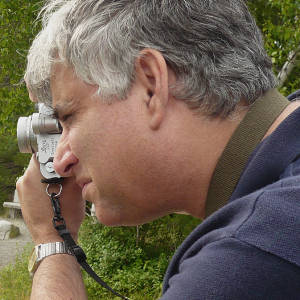The World's Weight in Balance. Lumix M4/3 14mm
The misery in the world reached a new low this week, one new tragedy and bloodbath atop the one before. At times like these, there is only one place for me to seek refuge: the music of Johann Sebastian Bach. This is not news to those who follow my journal, but if there is one part of his oeuvre, above even his church cantatas to sooth the soul, and remind us how small and insignificant we humans are in the vastness of the universe, then it must be his organ music. Bach reminds us again and again that humans can do good too; we can leave behind the littleness, and be capable of greatness. But in the context of his compositions for the church organ, that reminder is vastly magnified.
The organ is an ancient instrument tracing its origins back to Alexandria in the 3rd Century BCE. Thank you, Wiki. In a more developed and enlarged form, the power and complexity of its sound, and ability to inspire awe was not lost on the early Catholic Church. By Bach's time - late 17th to mid-18th century -, the church organ had become a vast, complicated machine, arguably the most complex and sophisticated devised to that point, not to be surpassed until the invention of the steam locomotive in the early 19th century.
Bach was renowned in his time as a virtuoso at the organ, in addition to the genius and power of his compositions. So much so, that he and his contemporary, Gottfried Silbermann, the famous Saxon organ maker, combined forces to secure new contracts for instruments in Lutheran churches scattered throughout Saxony. Bach would woo the church elders with his genius, and Silbermann would have them, still swooning, sign on the dotted line. What a partnership!
My Blip references BWV 543, a Prelude and Fugue in A minor believed to date back to Bach's early days as organist at the court of Saxe-Weimar, 1708-1713. He was a young man of 23. Consider that for a second. I want to lead those that are inclined, to an audio segment which has moved me to tears. The performer is a Dutch organist, Matthias Havinga, who brings his astonishing musicality, technical ability and physical strength to wrestle with this enormous, powerful beast, and give us an astounding performance of astounding music, demonstrations of all the wonderful things us humans are capable, if only we would stop killing each other.
I find it very easy to imagine as I watch Matthias playing - without music, his feet dancing effortlessly across the pedal board while both hands are occupied completely independently, that I am seeing and hearing a reincarnation of the young Bach, perhaps as his congregants perceived him. Here's the link.

Comments
Sign in or get an account to comment.


